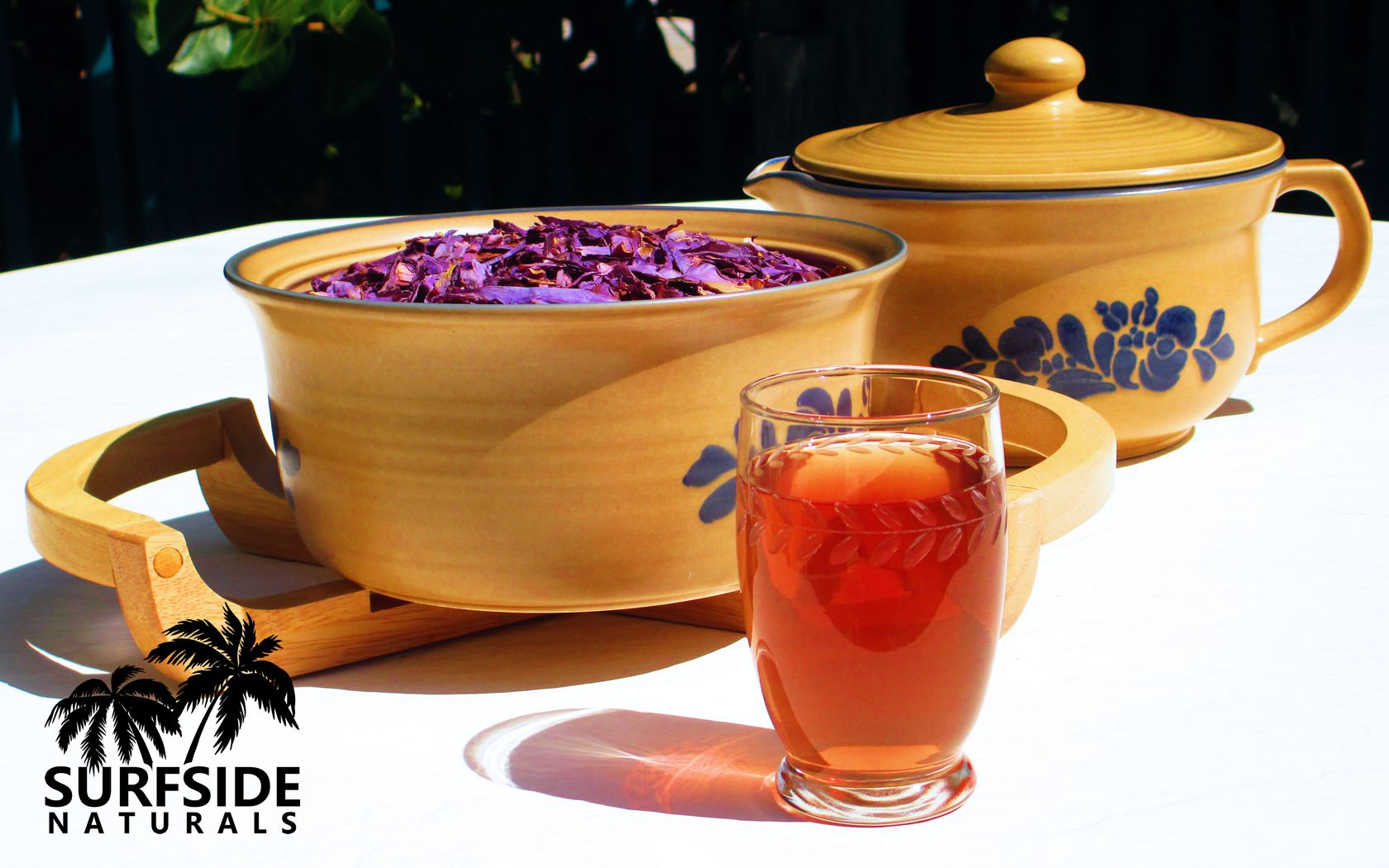
Can Blue Lotus be Used as a Tea?
Yes, Blue Lotus (Nymphaea Caerulea) has been used as a tea for thousands of years and is still a very popular tea in many countries.
Blue Lotus Tea Benefits
Blue Lotus Tea has been touted as a sleep aid and anxiety reliever. It has even been said to act as a natural aphrodisiac. However, more scientific study and research is needed to verify its effectiveness.
Blue Lotus Flowers contain several antioxidants, vitamins, and minerals. In most eastern cultures, Blue Lotus Tea, unless overconsumed, is considered a health drink.
Blue Lotus Tea has also been used as a natural skin moisturizer.
Know What Flower You are Purchasing or Using as Tea
It is important to know exactly what water flower you are making your tea with. Blue Lotus (Nymphaea Caerulea) is actually a lily and is also called Blue Water Lily. It has leaves (lily pads) that rest on top of the water. Another water flower that is sometimes referred to as the “Blue Lotus” is the Sacred Lotus (Nelumbo Nucifera). This flower’s leaves rest well above the water and have been used as a mild flavored tea for thousands of years. Sacred Lotus Flowers have also been used as tea and are even included in some food dishes. Make sure to find the Latin or scientific name of the water flower before buying Blue Lotus to use for tea.
Preparing Blue Lotus for Tea
The following is good practice for Blue Lotus and something to consider when making tea from any whole leaves or flowers.
Visually Inspect the Herbs
Due to their strong alluring fragrance, Blue Lotus (Nymphaea Caerulea) Flowers are irresistible to Bees. I have worked with Blue Lotus at night and been greeted by Bees. They also open in the morning and close in the evening. This can result in Bees getting trapped in the flowers. Take a minute to visually inspect the material for anything you may not want in your tea.
Washing the Herb
When making tea with water flowers, it is recommended that you wash them first. Even if they are organic or wildcrafted. Put them in a strainer and run cold water over them for several seconds while gently stirring them.
Making Tea with Blue lotus
When it comes to how the herbs are placed in the water, there are many options for making herbal tea. You can use tea bags, heat the material, and then strain it, or you can simply let the herbs sink to the bottom of the cup and have your tea. All of these methods will work fine, so it is simply a matter of preference.
There are several different methods of brewing or steeping herbal tea that will affect the flavor of the tea and, in some cases, its medical effectiveness.
- Have you ever made sun tea? Fill a large container with water, add the tea, and then place it in the sun for several hours. Basically, soak the herbs in water for a long period of time and let them slowly seep into the water.
- Heat the water and then either add the tea or pour it into a container or cup containing the herbal tea.
- Boil the herbs in the water for a period of time.
When making tea with any whole herbs, including Blue Lotus, you might consider boiling the material for a period of time. This may or may not affect the flavor of the tea, but it certainly will more effectively purify it.
Boiling, steeping, or soaking, herbal tea for too long can make it bitter in some cases.
How Much Blue Lotus Per Cup To Use
If you have never made tea using Blue Lotus, start out with a small amount and work your way up. A gram per 12 to 18 oz of water is a good place to start.
People who make tea from a Whole Blue Lotus Flower (average size: 2 grams) claim they are able to make several cups of tea with the same flower.
How to Sweeten Blue Lotus Tea
The strain of Blue Lotus, how the material is harvested and dried, and how fresh it is can affect the flavor and bitterness of tea made from it. There are several options for sweetening it.
- Honey
- Sugar
- Stevia Rebaudiana: is a low-calorie natural sweetener that is a member of the daisy and sunflower families.
Is Blue Lotus Tea Safe?
I scoured the internet for reports of someone being harmed by drinking Blue Lotus Tea and was not able to find even one case.
Some people have reported becoming a bit tired after consuming Blue Lotus Tea.
From the information I have been able to gather, unless someone is allergic to Blue Lotus, or has consumed an absurdly large dosage, drinking Blue Lotus Tea is unlikely to produce a serious adverse reaction in healthy adults.
People who are pregnant or nursing, have existing health problems, or are currently taking medications should consult their doctor before making any significant changes to their diets.
